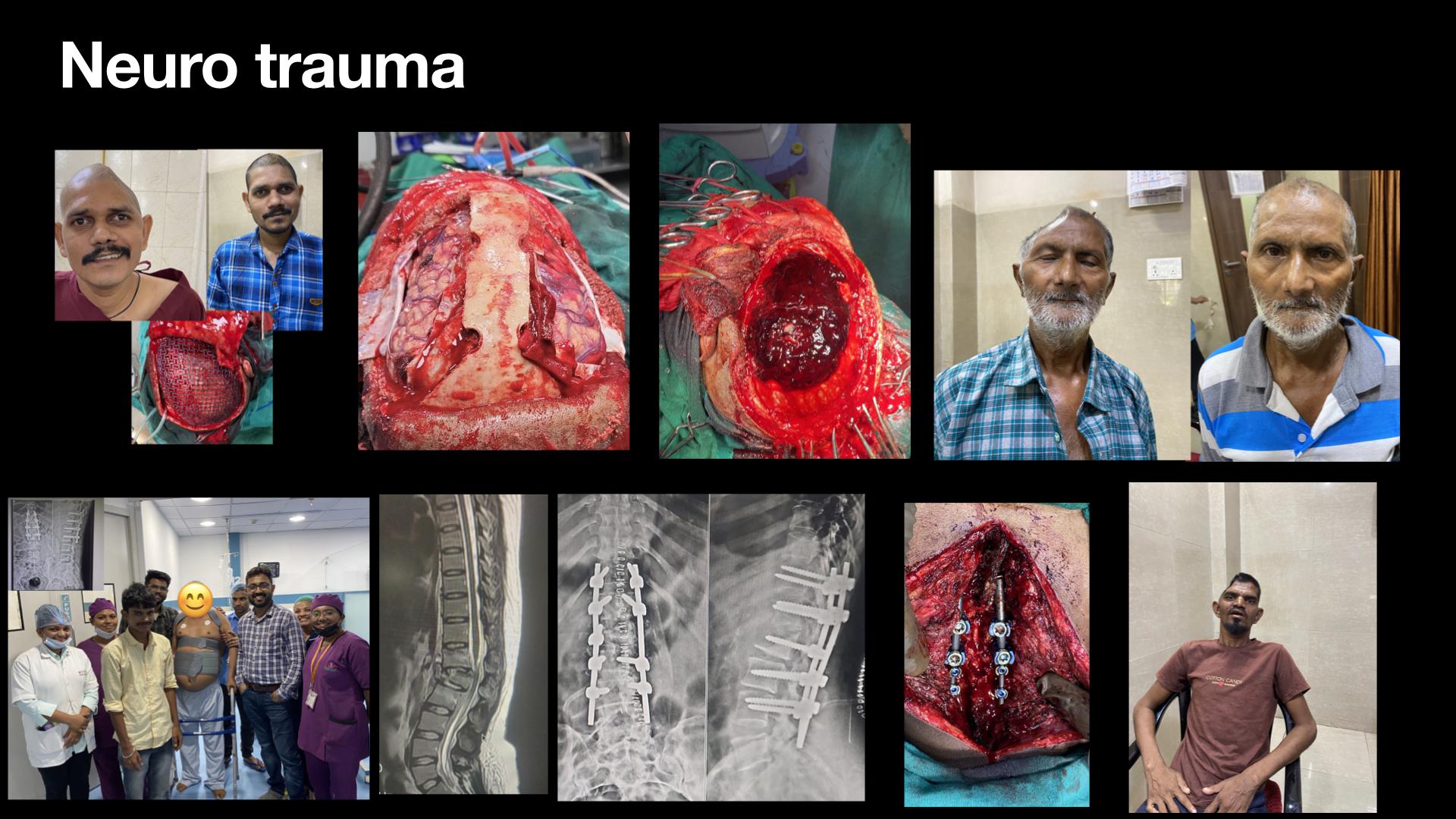Dr Jaypalsinh Gohil MBBS,MS,MCh neurosurgery, fellowship in skullbaseneurosurgery.
Dr Jaypalsinh Gohil MBBS,MS,MCh neurosurgery, fellowship in skullbaseneurosurgery.

Neurotrauma is a head or spine injury caused by a fall or road traffic accident. It includes concussions, traumatic brain injuries (TBI), skull fractures, spinal column fractures, and spinal cord injuries (SCI),etc.
Road traffic accidents are the leading cause of TBI in India. In India, bike accidents are more frequent than car accidents. Falling is the second most common cause of TBI, which occurs much more often in children than in adults. Attack, workplace collisions, and weapons deaths are among the other sources of TBI.
TBI can manifest itself in a variety of ways, ranging from the complete absence of any problems at the crash site to death at the trauma site. If a person has suffered a head injury, even if it is minor, we highly advise visiting and being taken to a local hospital for further treatment. Even minor looking incident can lead life threatening condition and deficits. Crucial hours are more important following trauma. In emergency try to reach nearest hospital as early as possible. The following are several common signs that may necessitate hospitalisation.
In the emergency department, all TBI patients must undergo a thorough and rapid assessment. A brief review of the trauma history is conducted, accompanied by a systemic examination of the whole body, including neurological tests. Blood tests are performed regularly. The brain is scanned using computed tomography (CT) to check for trauma-related brain injuries. Clinical examination and x ray or sos MRI scan may require for spinal injury.
The patient's treatment is assessed based on his or her clinical condition and a CT scan/ MRI of his or her brain/Spine. Many patients respond well to medical treatment, while others may need surgery due to their brain injury or spine injury depending on severity